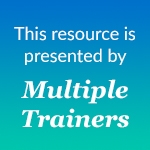

Search Results: culture
-
-
Create and sustain a collaborative culture by learning which systems shape organizations.
-
The “mind” or our “ego” are often depicted as a static entity, an unchangable part of human nature, and as obstacles or negative parts of ourselves to overcome. This view creates maligning, a split within us, while remaining invisibly part and parcel of authority-based societies --the dominant culture and institutions into which we are born. Instead, I want to advocate an integration of reason and emotion, mind and heart, plus self and others.
-
Join CNVC Certified Trainer Arnina Kashtan as explores interdependence, autonomy, valuing self and others, and power-sharing in your relationships. Free yourself to honor your longing for community, belonging, and love.
-
Please listen as we discuss and grapple with the issues of growing polarization in our world, political structures and personal relationships.
-
-
-
When does identifying our or others' needs become a coping mechanism that hides the real problems that go unaddressed, and thereby reinforcing problems? This article zooms out to take a look at how dealing with our needs in the absence of the larger picture can inadvertertly support unhealthy ways of operating, rather than become a healthy solution. It asks us to see what could be hidden -- both on the personal and societal levels.
-
What could be, more often than not, overlooked when we think about or represent NVC or Marshall Rosenberg's work? This article busts some commonly held ideas and approaches to NVC. It challenges us to widen the lens of what it really means to be "life-serving", or speaking and hearing the "language of life". And it also speaks to how thinking can deepen feeling and relatedness...
-
Could our "need for autonomy" be getting in the way of "partnership consciousness" (as NVC is sometimes called). Could "autonomy" also block healthy relationships with not only ourselves and with others, but also with the planet? This article invites us to consider how "autonomy" may colour our NVC practice at the peril of our critical values. Values such as our care for impact, shared responsibility, interdependence, compassion, consideration, and more...
-
Some people in the NVC community consider the words "privilege" and "power" triggering and/or evaluative. From this perspective, how can the concepts of "privilege" and "power" be considered part of the NVC teaching? This writing piece examines the power and privilege debate. It also discusses what the author sees as Marshall Rosenberg and Gandhi's stance on the subject...
-
Amidst racial violence, there are things that NVC can offer. And there are places where NVC culture needs to be more vigilant. Here are examples of where, amidst incredible loss and pain, "allies" and communities commonly (and often unknowingly) create false equivalences, minimization and re-injure those who've been historically marginalized -- even when they offer empathy, or aim to stay "safe". Read on to cultivate greater understanding and ways to respond differently.
-
Untethering from dominant culture and internalized oppression takes releasing attachments and persistence inspite upheavals -- all with insufficient support. Even in community building we can bring oppression into our efforts to untether. The more we walk towards vision, the more tethers of patriarchy we undo, the more the cost. By exacting such high cost, patriarchal societies reproduce and sustain themselves. To untether we need fortitude.
-
Rediscover your innate capacity for collaboration and learn to overcome systemic barriers.
-
Roxy Manning discusses the need to expand our understanding of observations within Nonviolent Communication (NVC). She challenges the idea of objective observation, noting its limitations, and introduces internal observations, citing personal experiences to illustrate their influence on emotions and self-perception. Additionally, she emphasizes systemic awareness as a crucial aspect of observation, highlighting its importance in understanding broader societal issues. Overall, Roxy advocates for a comprehensive approach to observations in NVC, incorporating external, internal, and systemic perspectives to foster inclusivity and empathy.
-
CNVC Certified Trainer Miki Kashtan explains how NVC's OFNR process is a tool to train our consciousness, rather than the "correct" way to speak.
-
CNVC Certified Trainer Miki Kashtan offers 3 steps we can take to access and express our deepest authentic expression.
-
-
Instead of allocating resources based on needs, we cling to having more money or privilege than others because its close enough substitute for our deeper longing. We may cling to narratives that seem to legitimize this inequality as something we deserved -- such as earning it; having more talent or ability; or needing more for company growth. This soothes our discomfort of having more than others. But these narratives still block us from genuinely getting in touch with the needs of life.
-
Perhaps human violence persists because we believe that violence is inevitable and there's nothing we can do about it -— even though there is notable evidence that this is likely not true. Read on for some research and theory on how cultures evolve to be collaborative or violent. Plus, learn benefits of collaboration and downsides to force, punishment, and control. These provide implications for how we might move towards a culture of more peace.
Quick Links

Stay in Touch!
We value your privacy, won't share your email address and you can easily unsubscribe any time.














